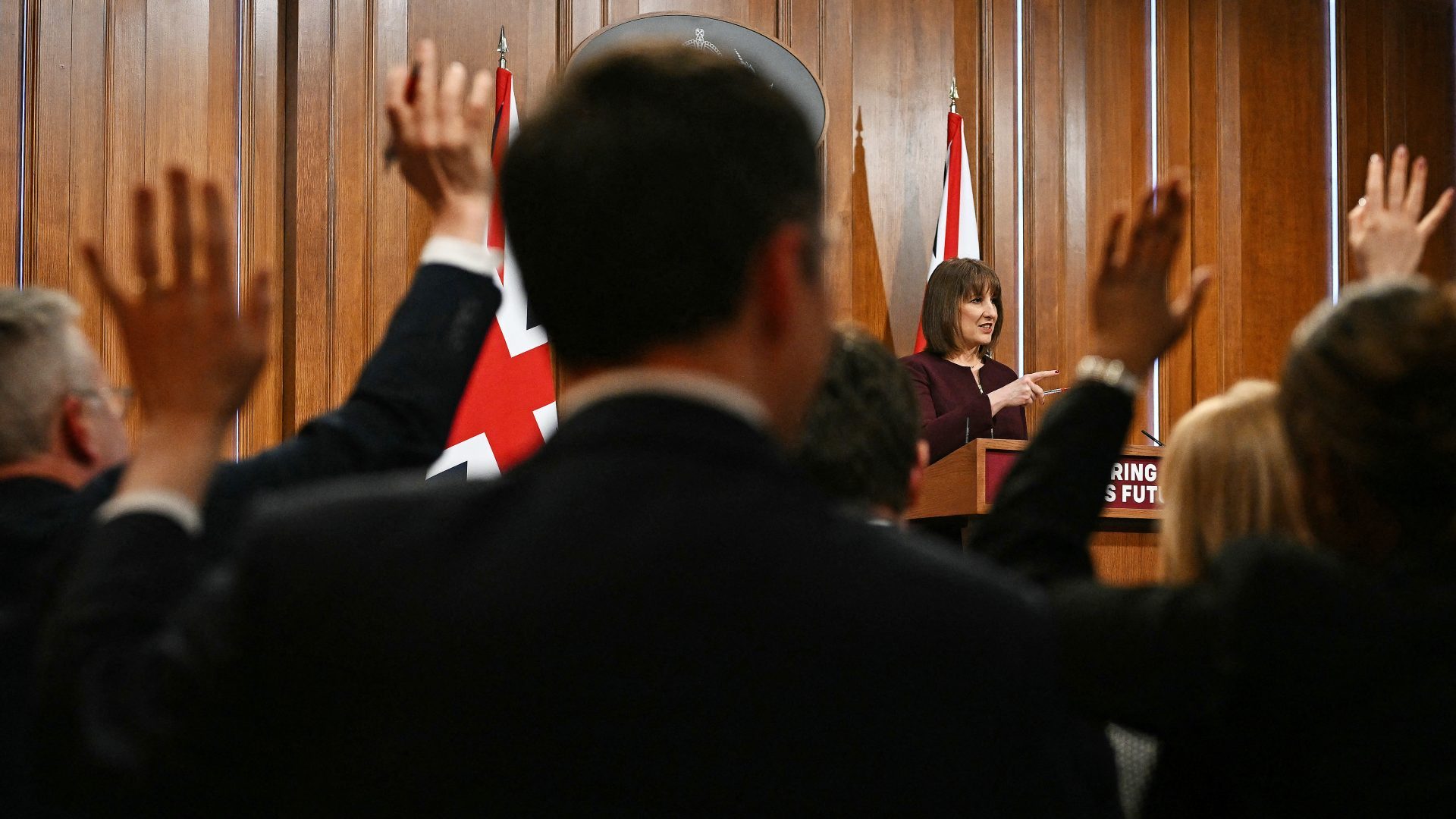If someone told you there was a significant chance that Russia will attack a Nato country in 2030, do you think you would consult the Office for Budget Responsibility about whether to rearm? Or spend days arguing the toss with the OBR’s three-man board about whether new spending on housing will deliver growth?
I know. It’s ludicrous. But it’s the position Rachel Reeves was put in when she stood up to make her spring statement last week.
After Donald Trump’s decision to walk away from European security, and to throw the western alliance into chaos, every part of the UK government exposed to security and defence is engaged in a scramble to rethink priorities and remove barriers to rearmament.
The Treasury, too, knows defence is now the number one priority, quietly replacing the energy transition as the likely driver of Labour’s growth mission. Reeves has added an extra £5bn to the defence budget this year, and announced a raft of initiatives to channel the money into digital innovation and small businesses.
Yet the processes governing UK economic policy remain those designed for peacetime. And as Reeves’s backchannel row with the OBR shows, the old structures are getting in the way of the government’s ability to adapt.
The original rationale for creating the OBR was correct: Gordon Brown, while chancellor, had become master in the art of making the Treasury projections justify whatever spending decisions he wanted to take. By moving the modelling to an independent office, you could subject the debt and deficit projections to better public scrutiny, albeit at the cost of some back-and-forth before each fiscal event.
But the downsides immediately became apparent. During the Cameron administration, the OBR underestimated the negative effects of austerity, creating a doom loop of spending cuts and stagnation.
The OBR seems populated by orthodox free-market economists who have convinced themselves that neither tax cuts nor public investment can really stimulate long term growth. That’s why Liz Truss sought to circumvent the OBR in her ill-fated mini-budget of September 2022.
And it is why Reeves, in the run-up to the spring statement, found herself having to lop an extra £500m off the welfare budget because the OBR’s model said her £6bn cut would not suffice.
In short, by setting up the OBR, Osborne created a classic game-theory problem, whereby the chancellor and the OBR advance rival and imprecise modelling assumptions in an attempt to put a precise figure on GDP and debt in five years’ time.
There is, said the OBR last week, “a high degree of uncertainty” about Reeves’s expectations for investment-led growth. In the two months before the spring statement, says the OBR, it “requested changes to methodology and/or the interpretation of recent data” in “many cases” of the Treasury’s proposals.
In addition to the short-term chaos this process injects into policymaking, it creates a ludicrous strategic problem: the modelling department of the OBR effectively has more political power than the chancellor.
If the economy were growing and the world was at peace, maybe this problem could be resolved at leisure. But we’re stagnating, Trump has declared trade war on the world and – if the US is no longer a reliable ally either at the conventional or nuclear level – we face massive up-front rearmament costs.
The strategic challenge facing Rachel Reeves, and in fact the whole British centre left of every political stripe, is that the 2008 crisis, the Osborne austerity era, Brexit and Covid each hiked the level of government debt, so that it is now close to 100% of GDP. Meanwhile government borrowing costs have risen tenfold (!) since 2021.
That means, every year, Reeves has to find £105bn to pay interest to bondholders: that’s 8% of government spending and nearly 4% of national income. With demographic ageing, the mental health crisis and post-Covid effects set to expand the welfare bill by £100bn by 2030, something will have to give – and neither cuts to development aid nor a few billions off welfare today will suffice.
Britain’s current bind is a product of our national mistakes and the global situation. All governments are facing higher debt-servicing costs, because the post-2008 regulations have made all capital more risk averse. But our costs are among the highest – because of Brexit and because Liz Truss’s fiscal lunacy badly dented confidence in the UK governance system.
Reeves’s original conception, summed up in the word “Securonomics” was correct: borrow to invest in infrastructure and energy, impose tight fiscal rules on day-to-day spending, and the economy should begin to grow sustainably. The political problem was always going to be pain before gain – and whether the gain would come within the five years needed to avoid putting the Tories or Reform in power.
But Trump throws two massive spanners into the works. His stab in the back for Ukraine, his threats to walk away from Nato, and worries about the independence of our nuclear deterrent mandate massive spending on defence. We will need to sustain a force on the ground and in the air in Ukraine, rebuild our own military and quite possibly find an extra delivery mechanism for our nukes.
The lesson from the 1930s shows that this can only be done through borrowing. Yet borrowing costs are already eye-watering, and would likely rise. Sure, you can impose a wealth tax, and later in the process a windfall tax on defence company profits, as Baldwin tried to do in the 1930s.
The way forward is, first, to reform the OBR – or even scrap it – so that politicians get to take the urgent political decisions, not economic modellers. If it cannot accept that investment will raise the long-term growth potential for the economy now, it will never rubber stamp rearmament, nor would it have done so in the 1930s.
Beyond this, the government needs to find new ways to incentivise investors to fund rearmament at lower interest rates. It needs to tap into the fiscal firepower being unleashed in Europe; it could partner with Norway – guaranteeing the latter’s security perhaps in return for some of that country’s $1.7tn sovereign wealth fund; it could sponsor a European Defence Union, pooling resources with more cash-rich countries to share the burden.
So in a week where Reeves has found herself beleaguered, my message to her is: rearm and the economy will grow – and if the OBR does not believe that, find some modellers who do.




